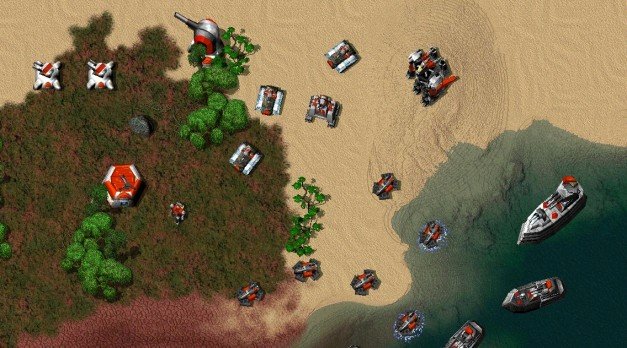Chris Taylor: "Total Annihilation was a game I designed for myself"

Total Annihilation was one of the PC's most forward-thinking strategy games - it threw out all the arbitrary conventions of the genre and created something more like a simulation. The result was a game plenty of PC gamers still consider unsurpassed. More recently, its creator Chris Taylor took over development of Age of Empires Online, a free-to-play version of the old classic. When I got to chat to him recently, I asked about the unconventional economy model TA used, and why he didn't stick with it.
PC Gamer: That structure was something you moved away from in SupCom 2, I wondered if you considered it a mistake, or just something you hadn't perfected yet.
Chris Taylor: One of the things that at first I thought was kinda novel, and then wondered if that was the right approach, was designing a game for myself. So Total Annihilation was a game I designed for myself. It was like everything I wanted in an RTS game, I put into Total Annihilation. Units could shoot while they moved, real physics, the fact that stuff was more emergent - based on rule system rather than hardcoded. So there's a lot of things that I really wanted to do.
But as I went along and as the stakes got higher and as the games got more complex and the teams got bigger, I started thinking to myself: well, maybe I should be designing this game more for the people who are playing it, and not myself. Which I think actually works well. I mean if you talk to some very successful developers and teams, they say "Oh yeah, we sit around for hours and days, and we try out all these different ideas and gather all this feedback, and we do a lot more of that kind of research."
And so I went more in that direction. And what happens is you get games that can actually sell more. So Supreme Commander sold more units with its somewhat less surprising and quirky game design than Total Annihilation did. So it was kind of true; if you wanted to make a game that people enjoy and wanted to play, you had to pay more attention to what they thought, what they wanted to do. So it works.
But you do lose some of that crazy artistic stuff. Game design is an art. It's a real challenge. So what we're doing with AoEO is we're trying to make sure people are comfortable, and they can jump in and they can play, but then there's some modes, some boosters, some content that has fresh ideas in it.
Just the fact that we have the Defense of Crete, for example, where you're playing co-operatively/competitively, you actually have to explain it to someone a few times before they understand exactly what that is. You're like "No no, you're playing with a buddy against the computer, which is a comp-stomp, and then you're going to turn around and you're going to compete with your other friends - single or in pairs - to beat their score.
Keep up to date with the most important stories and the best deals, as picked by the PC Gamer team.
So that's where we're taking it to some places where people might [say], "Oh yeah, really? That's an interesting idea."
So let me answer your question by saying that it's a mix of both, it's a mix of doing some fresh things that are kind of interesting and new, and doing some things that are comfortable. So you have one foot in each camp, as you push a design forward.
Previously Chris told us why he thinks Steam's dominance will shift , why he couldn't go back from free-to-play games, and why PC gaming is bigger than ever .
On Tuesday we'll have a podcast of this interview - with both Chris Taylor and Danan Davis of Microsoft Games, so you can hear what else they had to say about PC gaming, Age of Empires Online, Rise of Nations and the future.

